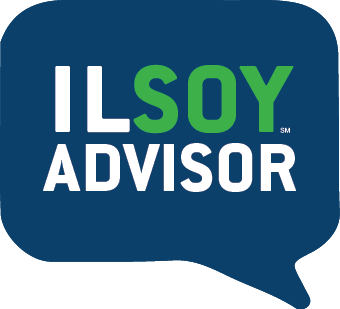As our farm businesses use tax planning tactics to reduce current tax liability impacts, we do not completely reduce the tax but move the tax to a future year. This webinar will provide details on the importance of identifying and calculating your operation’s deferred tax liability and how that can affect your current and future strategic farm management decisions.
Presenter: Dick Wittman, Wittman Consulting, Farm Manager/Family Business... Read More →
ILSOYADVISOR POST
What Does a CCA Soy Envoy Do?
December 03, 2019
It was an 86-year-long journey that eventually launched the modern Certified Crop Advisor (CCA) program. The American Society of Agronomy (ASA), currently headquartered in Madison, Wisconsin, was founded on December 31, 1907 with only 43 individuals—over time that would grow to 10,000 members in 1978. The ASA provides resources and network opportunities for agronomy and soil professionals to learn and in turn advise others. In 1993, ASA launched the Certified Crop Adviser program. There are currently 13,000 individuals, including 1,200 form Illinois that have earned and currently hold the honor of being a CCA.
The purpose of a certification program is to protect the public and the profession. It is a voluntary professional enhancement to a person’s career credentials. One reason farmers and employers prefer to work with CCAs is because they have demonstrated the commitment, education, expertise and experience to make a difference in a client’s business (ASA agronomy.org). Learn more about the CCA certification process here.
CCAs are required to obtain 40 Continuing Education Units (CEUs) in a two-year cycle in nutrient management, soil & water management, integrated pest management, crop management and professional development. These CEUs are opportunities for active CCAs to stay engaged with modern practices and potential issues in order to properly advise farmers, clients and landowners on good agronomy practices.
As a CCA, I take great pride in being one of the select few who carry the title. Passing the CCA exam is not an easy task, with only 40 percent of those taking the exam passing and becoming certified. This certification is self-elected, no one told me or forced me to become or stay a CCA. I aggressively attend as many CEU offered meetings or events as I can throughout the year to stay as current as I can. I also take seriously the responsibility when I sign the CCA code of ethics and strive very hard to live and advise by these high standards, as do so many fellow CCAs.
In 2015 the Illinois CCA program and the Illinois Soybean Association partnered to launch the CCA Soy Envoy program. This program brings agronomy and production management focus to soybeans. The Soy Envoy program recruits 6 Illinois CCA members from across the state and these individuals provide actionable information and advice on issues during the growing season. Envoys write and publish monthly blogs on relevant topics in their region for ILSoyAdvisor.com, record interviews for the ILSoyAdvisor podcast, and support regional ISA farmer meetings. ISA is currently recruiting CCA members to become a 2020 CCA Soy Envoy. For details please email requests to steinacher@ilsoy.org.
1. How to become a CCA:
b. Complete Tri-State Exam
c. Complete International Exam
d. Complete education / advising requirements
e. Sign the Code of Ethics
2. CCA Specialty Certifications:
a. 4R Nutrient Management
b. Precision Agriculture
c. Resistance Management
d. Sustainability
3. Locate a CCA:
a. Not all industry representatives are required to hold a CCA, so follow the below link to search for a CCA in your region.





Comments
Add new comment